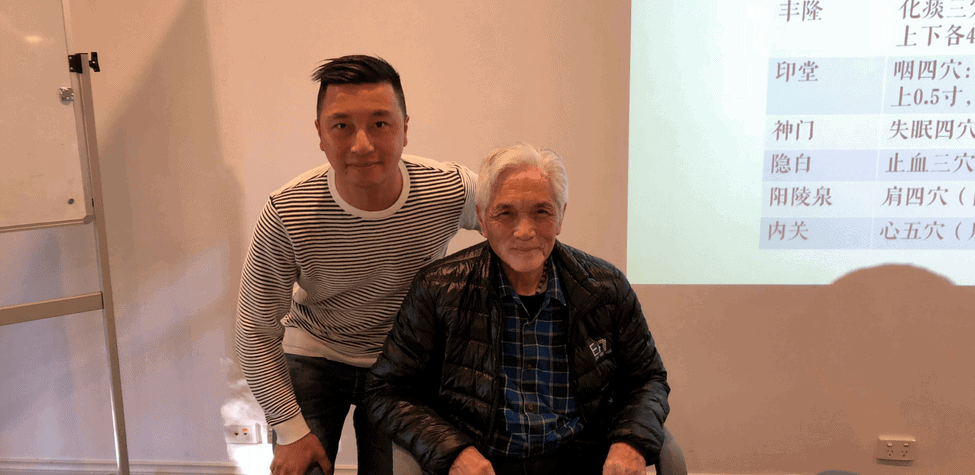Acupuncture for cancer pain relief is a journey not everyone understands.
You see, when faced with the debilitating pain of cancer, patients are often left wondering… what now?
Acupuncture for cancer pain relief.
This time-honoured technique has been offering succour to those in need for millennia. For those unfamiliar with its workings or benefits, acupuncture may not be an option they consider.
The reality is that acupuncture can be hard to comprehend folks.
A recent conversation I had with a breast cancer survivor opened my eyes. She shared her story about how acupuncture treatments became her lifeline amidst gruelling chemotherapy sessions…
Suddenly she wasn’t just surviving; she was thriving!
Table Of Contents:
- The Burden of Cancer Pain and the Need for Alternative Solutions
- Understanding Acupuncture as a Traditional Chinese Medicine Practice
- Acupuncture for Cancer Pain Relief – Evidence from Clinical Trials
- Developing Guidelines for Acupuncture in Cancer Treatment
- Bridging Eastern Wisdom with Western Medicine – Integrating Acupuncture into Cancer Care
- FAQs in Relation to Acupuncture for Cancer Pain Relief
- Conclusion
The Burden of Cancer Pain and the Need for Alternative Solutions
When it comes to cancer, pain is a common companion. It’s not just an occasional inconvenience – this relentless discomfort can significantly disrupt daily activities, work-life balance, and emotional well-being.
In spite of advancements made by Western medicine with regards to cancer treatments, effective management of associated pain remains elusive. There are multiple barriers that stand between patients and optimal relief from their symptoms.
Lack of Training or Time Constraints among Healthcare Professionals
A significant hurdle on our path towards better care involves healthcare professionals themselves: lack of adequate training or time constraints often prevent them from providing optimum treatment plans for those suffering under the weighty burden that is cancer-related pain. This issue needs addressing urgently as it directly impacts patient outcomes.
Fears about Medication Side Effects or Addiction
Patient concerns regarding potential side effects related to medication use cannot be overlooked either. Fear around addiction further complicates matters when considering pharmacological interventions for controlling severe joint pains experienced by many advanced breast cancer patients. Such fears need dispelling through proper education so we can help alleviate unnecessary distress caused by these misconceptions.
Economic Challenges & Access Difficulties
In addition, economic challenges such as reimbursement issues pose another obstacle while geographical limitations may hinder easy access to prescriptions necessary for relieving debilitating symptomatology.
Exploring complementary therapies like acupuncture could provide much-needed respite amidst these complexities. Traditional Chinese Medicine practice has been known over centuries to relieve various health conditions without causing harsh treatment side effects commonly seen with standard medications.
Understanding Acupuncture as a Traditional Chinese Medicine Practice

For those seeking to explore alternative methods of health management, Acupuncture – an ancient Chinese medicine practice involving the insertion of thin needles on the body – may be worth considering. It’s an age-old practice in traditional Chinese medicine that has been used for thousands of years.
The process involves inserting thin needles into specific points on the body – these are known as ‘acupuncture points’. The aim is to alleviate discomfort and promote overall well-being by balancing energy flow within our bodies, according to ancient Chinese philosophy.
How Does Acupuncture Work?
You may wonder how sticking tiny needles can provide relief from ailments or pain? Well, it all comes down to stimulating certain areas of our anatomy which trigger natural healing responses within us.
- Opioid Peptides Release This therapeutic method works by activating nerves in muscles and tissues at targeted locations. This stimulation results in releasing endorphins – naturally occurring chemicals acting like morphine-like substances aiding pain control. Studies have shown this opioid peptide release aids significantly with cancer-related pain management among patients undergoing treatments such as chemotherapy or radiotherapy.
- Serotonin Secretion StimulationApart from triggering endorphin production, another theory suggests that acupuncture could stimulate serotonin secretion too. Serotonin plays a vital role not only in regulating mood but also managing the physical perception of discomfort as per research findings. Hence this neurotransmitter’s increased levels due to post-acupuncture treatment potentially contribute towards alleviating cancer symptoms experienced during ongoing therapies, including joint pains often reported by breast cancer patients.
Acupuncture for Cancer Pain Relief – Evidence from Clinical Trials
The journey towards cancer pain relief can seem overwhelming, but the solution might be simpler than you think. Acupuncture, an ancient Chinese medical practice, has exhibited noteworthy potential in clinical experiments as a successful approach to controlling and diminishing cancer-associated pain.
Let’s delve into how acupuncture could potentially revolutionise your approach to managing your symptoms of discomfort.
A Glimmer of Hope: The Science Behind Acupuncture

You may wonder about the science behind this ancient therapy. How does inserting thin needles at specific acupuncture points help relieve pain?
In fact, research published in JAMA Oncology, suggests that these fine needles stimulate certain physiological responses that result in analgesic effects helping patients experience less intensity of their usual pains associated with cancer treatments or even advanced stages of disease progression.
This is not just theory it’s backed by evidence showing substantial reduction in medication doses required for adequate pain control among those who incorporated regular sessions of acupuncture into their treatment regime.
Palliative Care Reinvented: Role Of Acupuncture
- An essential part within palliative care:When it comes to palliative care, the specialised medical attention aimed at improving quality-of-life during serious illness acupuncture takes centre stage.It’s been found particularly useful when dealing with persistent joint pains or other distressing side-effects related to chemotherapy.
- Beyond physical comfort:The benefits aren’t limited merely on a physical level; emotional well-being also gets boosted due to better symptom management which allows patients focus more on healing rather than battling daily discomforts.
- Holistically patient-centred approaches:This shift towards integrative therapies like acupuncture marks an evolution where healthcare professionals are recognising value beyond conventional Western Medicine practices alone.Such holistic strategies often lead improved outcomes overall from alleviating burdensome symptoms through increasing satisfaction levels among individuals undergoing rigorous therapeutic treatment.
Acupuncture, an ancient Chinese therapy, is showing its chops in modern medicine by offering significant relief from cancer-related pain. Not only does it reduce the need for medication doses but also improves emotional well-being and quality of life, giving patients a fighting chance to focus on healing rather than daily discomforts.
Developing Guidelines for Acupuncture in Cancer Treatment
The world of cancer treatment is evolving, and acupuncture has emerged as a promising complementary therapy. But to legitimise its use alongside conventional therapies, we need evidence-based clinical practice guidelines.
The necessary steps to legitimise acupuncture as a complementary therapy alongside conventional treatments must be taken. Here’s how this process unfolds:
Formulating Comprehensive Guidelines
To create these all-important rules, where do you start? How can traditional Chinese medicine be incorporated into modern western practices?
Your first port of call should be literature reviews – comprehensive studies that delve deep into previous research on acupuncture points and their effectiveness in relieving pain associated with cancer treatments. The assessment doesn’t stop there though; patient preferences and values are also taken into account when formulating these guidelines.
Research conducted by the World Health Organization (WHO), serves as a gold standard reference point here.
Dissemination and Updates on Guidelines
Making sure practitioners worldwide have access to these protocols is crucial. This involves disseminating them through academic journals or conferences – even public media outlets come handy.
- Publish new findings regularly so that they remain relevant amidst rapidly advancing medical science.
- Incorporate fresh insights from ongoing clinical trials involving breast cancer patients or other survivors who’ve experienced relief via acupuncture treatments.
- Acknowledge feedback from healthcare providers using such complementary therapies within palliative care settings.
These measures ensure our understanding continues to evolve while bolstering confidence among both practitioners and patients regarding the role of alternative methods like acupuncture in managing side effects related to advanced cancer treatments.
Bridging Eastern Wisdom with Western Medicine – Integrating Acupuncture into Cancer Care
This fusion provides an avenue for holistic health management that addresses not just physical symptoms but also emotional well-being.
Acupuncture has been found effective in providing relief from chemotherapy or radiotherapy-induced side effects, playing a vital role in supportive care for patients undergoing these treatments. For more information on this topic, check out National Cancer Institute’s guide on acupuncture as part of comprehensive cancer treatment plans.
Overcoming Barriers to Integrative Approaches

The journey towards integrating alternative therapies such as acupuncture into mainstream healthcare is fraught with obstacles – misconceptions about their effectiveness and lack of awareness among both patients and practitioners being prime examples.
To overcome these hurdles, education campaigns are essential tools; they provide accurate information about how techniques like acupuncture work and what benefits they offer. It’s equally important that we foster collaboration between practitioners across different medical backgrounds for successful integration.
A study published in BMJ Open highlights the positive impact interdisciplinary cooperation can have on patient outcomes by allowing personalised treatment plans incorporating complementary therapies alongside conventional methods.
- Merging East & West: The Future Of Holistic Healthcare
Incorporating eastern wisdom through practices like acupuncture within our predominantly western-oriented healthcare system could revolutionise how we approach pain control in advanced cancer cases. But achieving this requires concerted efforts at all levels from clinicians to policymakers towards fostering acceptance for integrative approaches within our health systems.

FAQs in Relation to Acupuncture for Cancer Pain Relief
Is acupuncture good for cancer pain?
Yes, research shows that acupuncture can effectively alleviate cancer-related pain and reduce the need for analgesic medications.
What to do when cancer pain is unbearable?
Besides conventional medication, alternative therapies like acupuncture can be explored. Always consult with your healthcare provider for personalized advice.
What do they give cancer patients for pain?
Cancer patients are often prescribed opioids or non-opioid analgesics. Some also find relief through complementary therapies such as acupuncture.
Why is cancer pain so painful?
Cancer causes discomfort due to tumor growth pressing on bones, nerves, or organs. Additionally, treatments like chemotherapy and radiation therapy may induce painful side effects.
Conclusion
Understanding the burden of cancer pain, it’s clear there is a need for alternative solutions.
Acupuncture, as a traditional Chinese medicine practice, offers such an option.
The mechanism behind acupuncture involves the release of opioid peptides and serotonin to provide relief from pain.
Clinical trials have shown promising results with acupuncture effectively relieving cancer-related pain. Acupuncture may be a useful tool for palliation, helping to improve quality of life by lessening fatigue and distress.
Evidence-based guidelines are being developed for integrating acupuncture into conventional cancer treatments. This approach combines Eastern wisdom with Western medicine practices for holistic patient care.
Patient stories reveal how this ancient practice can offer much-needed relief during their challenging journey battling cancer.
If you’re seeking alternative ways to manage your symptoms or improve your overall wellbeing during treatment, consider exploring Sustain Health. Our clinic specialises in Traditional Chinese Medicine and acupuncture therapies that could make all the difference in managing your cancer pain relief. Reach out today – let us help you on your path towards improved comfort and health.


